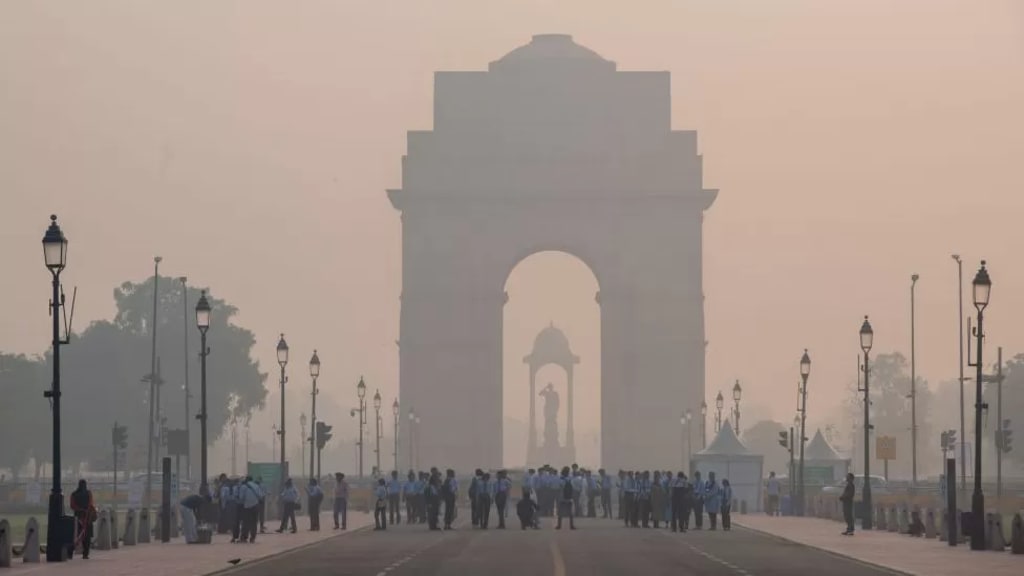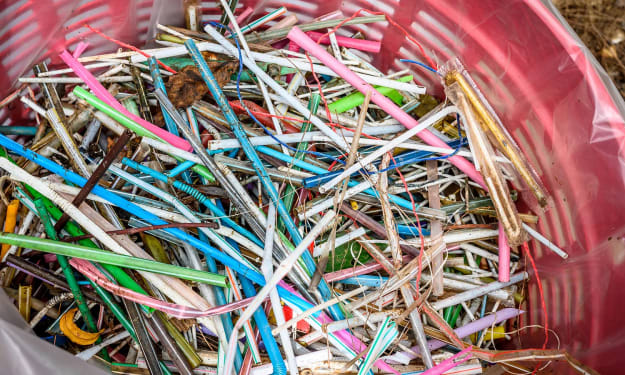Delhi pollution
No school, no play for city's children

By Cherylann Mollan
BBC News, Delhi
"Mum, can I please play for a bit longer?"
That is the refrain that six-year-old Vanraj's mother, Pakhi Khanna, is bracing herself to deal with for the next couple of days in the Indian capital Delhi. The 38-year-old has cut her son's outdoor playtime to 30 minutes from two hours; his classes have shifted online this week, and football coaching has been called off.
Vanraj is among thousands of schoolchildren in Delhi whose schedules have abruptly changed due to air pollution rising to alarming levels. Over the past few days, Delhi's Air Quality Index (AQI) - which measures the level of PM 2.5 or fine particulate matter in the air - has consistently crossed the 450 mark, nearly ten times the acceptable limit. Breathing this toxic air is akin to smoking 25-30 cigarettes a day, according to lung specialists.
Things are so bad that Delhi's Environment Minister Gopal Rai has asked all schools to remain shut until Friday, with offline classes only for high schoolers. This isn't the first time that air pollution has disrupted learning in Delhi - it has been happening every winter over the past four-five years.
"In fact, the number of days schools are shut due to air pollution has been increasing. Now, classes are disrupted for at least five-six days at a stretch," says Shariq Ahmad, principal of a government school in Kalkaji in south Delhi.
Parents and experts are concerned about the effect of these abrupt breaks in learning and daily routines on children, especially when schedules had just got back to normal after the Covid-19 pandemic.
As always, things are more difficult for families with fewer resources.
Deepa, who works as a domestic help and uses only one name, says that the online model of learning doesn't work for her sons. Abhishek, 12, in the seventh grade, and Prasanna, 10, in the fifth grade, study in a government school.
Since Friday, the school has asked children to study at home, with teachers emailing photos of worksheets to be completed in the morning. But Deepa's family doesn't own a laptop - the children can only access their schoolwork after their mother, who cooks and cleans in many houses, returns home in the afternoon and gives them her mobile phone.
She says that her sons struggle to understand the lessons without help from teachers.
"I worry that this will affect their performance in the exams next month," Deepa says. "I would prefer it if my children wore masks and went to school," she adds.
But Delhi's pollution levels are so high that even masks offer little protection.
Anant Mehra and his wife have completely stopped outdoor playtime for their three-year-old daughter, Mira. On the one hand, they're relieved that her nursery classes have shifted online, but on the other, they say that it's exasperating to get a three-year-old to sit in front of a computer for hours.
Mr Mehra also says that being homebound is making Mira restless and irritable. "She misses her friends; she misses the play-based learning she does in school," he says. He and his wife - who have a hybrid working model - have built their schedule around Mira's nursery hours, so her being at home impacts their work day as well.
"Stopping classes abruptly like this is just not sustainable, for schools, students or parents," Mr Mehra says. "The government needs to do something to reduce the pollution, and soon," he adds.
While Mira and Vanraj know that they are being stopped from going outside due to "bad air", both of them don't fully understand the dangers of breathing toxic air. For them, air pollution is a recurring hindrance that stops them from playing, meeting friends and having fun.
"As a parent, I want to keep my child safe, but I also don't want to scare him or make him constantly worry about the air he's breathing," Ms Khanna says. "So I have to strike a fine balance when I explain to him why he can't do certain things."
The disruption is also affecting teachers. Ananya Sharma (name changed) who teaches English and environmental studies to children aged seven-10 years, says that the sudden announcement of online classes throws her plans off track.
She has to suddenly pick lessons that work for the online mode - topics that are shorter and easier to comprehend - and then create coursework for her children to practise at home. But she says that she'll have to re-teach these lessons once physical classes resume as many children struggle with online learning.
"This puts a lot of pressure on us because we also have to think about completing the syllabus," she adds.
Meanwhile, people like Shreya Nidhi, who is a guardian to her 14-year-old brother, Umang, says that she's disappointed with the government and the way pollution disrupts her brother's learning every year. Before the government's order to shut schools, she had stopped him from attending school even though it meant missing exams.
This had made Umang frustrated and miserable as he was worried about how missing exams would impact his academic year.
"But to me, his health matters more. Since the government isn't doing anything to combat air pollution, we have to take these extreme measures to protect our loved ones," she says.
About the Creator
deenadhayalan
I'm a freelance writer specializing in small business content. I've worked with companies in a variety of industries like home care to fine leather goods.






Comments
There are no comments for this story
Be the first to respond and start the conversation.